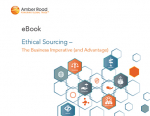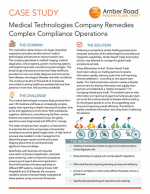2018 Global Apparel Supply Chain Management Report
As quickly as technology is pushing consumer-facing capabilities forward, behind the scenes apparel industry supply chains are moving at a decidedly slower pace.
Thanks to innovations like cashlesscheckout, digital assistants and next-day delivery, shoppers have virtually everything at their fingertips. Or they could, but attaining the right amount of speed to market continues to be an issue for many supply chain executives.
The answer to speed is greater efficiency. But taking product development down from months to weeks to even days, requires fewer meetings, less back and forth, and more transparency—as well as a boost in automation.
This survey highlights the ways in which apparel brands and retailers still need to transform to achieve the turnaround times and monetary goals they’ve set forth. From those polled, it is clear the industry is suffering from a lack of “realtime continuous information exchange” and laboring under the “complexity of the process and systems that are not integrated internally.”
This report also shines a light on the ways in which many in the industry are failing to capitalize on innovations like artificial intelligence, analytics, internet of things and conversational systems—just four of the eight immediate and future tech trends that supply chain leaders need to watch, as identified by Gartner in its Market Guide for Global Trade Management Software report.
What’s evident is that until the industry is ready to embrace a new paradigm, invest in innovation and work together, progress will remain slow.
Digital Divide
As the apparel industry attempts to catch up to the speed at which consumer expectations are rising, many companies are racing to digitize their processes. The hope is that by discarding manual processes, they’ll be able to reduce excess manpower, eliminate unnecessary redundancies and ultimately slash time to market.
With shorter production calendars and quicker response times, the thinking is that it will be possible to deliver the products shoppers want at the time they’re looking for it. For the brands and retailers that achieve this, they’ll be unburdened from the overstocks, markdowns and anemic margins currently plaguing a large swath of the fashion industry.
But the reality is most companies are a far cry from reaching those goals. To do so, they must automate their supply chain execution processes. Digitizing the supply chain has been a leading topic lately with companies testing, onboarding and expanding a host of innovative tools.
When it comes to handling communications and data flow, many have invested in some type of supply chain software. More than half (51 percent) use a Product Lifecycle Management (PLM) or Product Data Management (PDM) system and 48 percent employ an enterprise resource planning system.
Supply chain management execution programs and global trade management software are also in the mix for some while others still rely on Excel, Google Docs and Microsoft Office products.
What’s Related




Favorites





